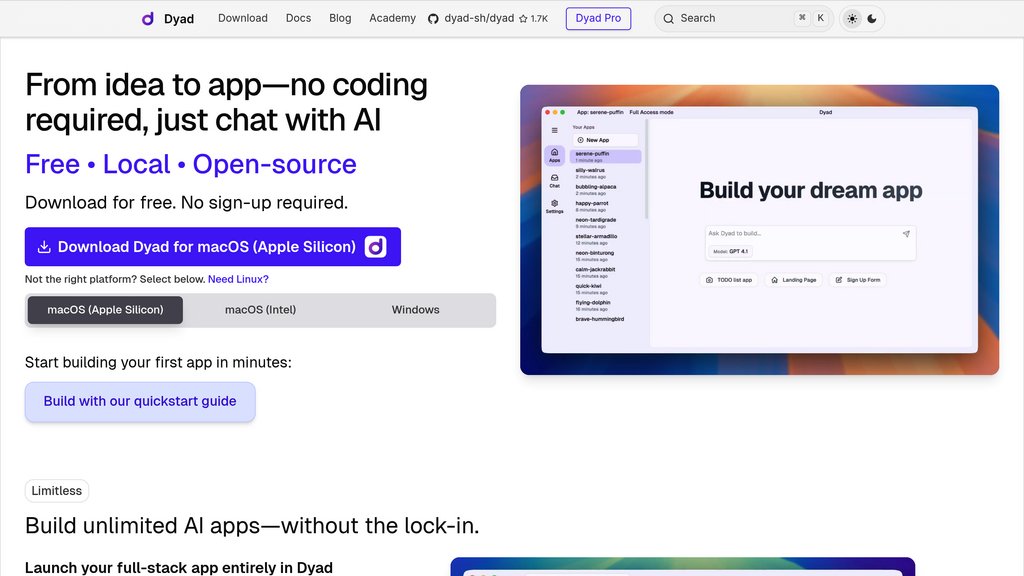Dyad
Open-source local AI development platform with visual and code modeling
Introduction
What is Dyad?
Dyad serves as a comprehensive AI application development environment that operates natively on your computer, guaranteeing data security and complete autonomy without platform restrictions. The platform accommodates both text-based programming and visual interface design, allowing technical professionals to fluidly transition between coding and graphical modeling. Dyad incorporates cutting-edge scientific machine learning, differentiable programming, and conventional engineering modeling methods, making it ideal for intricate system design and simulation tasks. As an open-source solution with cross-platform capabilities, it enables developers to construct, validate, and implement AI-enhanced applications effectively.
Key Features:
• Local Processing: Executes directly on your hardware for accelerated performance, superior privacy protection, and complete independence from cloud infrastructure
• Open-Source Flexibility: Licensed under Apache 2.0, permitting extensive customization and community contributions while supporting external AI API integration
• Unified Visual-Code Workflow: Facilitates effortless alternation between graphical modeling environments and textual programming interfaces
• Scientific Computing Capabilities: Merges differentiable programming, scientific ML, and physics-based modeling for engineering-caliber system development
• Multi-Platform Compatibility: Functions seamlessly across macOS and Windows operating systems
• Developer Tool Integration: Compatible with version control systems, dependency management, continuous integration pipelines, and hardware deployment protocols
Use Cases:
• AI Solution Engineering: Develop and refine artificial intelligence applications locally with complete authority over code and model architecture
• Complex System Simulation: Create and analyze sophisticated engineering systems using integrated scientific machine learning and conventional modeling approaches
• Adaptive Development Methodologies: Transition between visual and code-centric workflows to suit various technical preferences
• Confidential Data Projects: Build AI solutions without external data exposure, maintaining strict information security
• Team-Based Development: Utilize collaborative tools and package management for sharing reusable components across development teams
